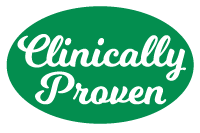PhosphatidylSerine Slows or Even Reverses Age-Related Memory Loss and Other Cognitive Functions

Phosphatidylserine in Flavay Plus® can revitalize the declining brain.
Double-blind studies involving more than 1,000 people show that phosphatidylserine can be an effective for Alzheimer’s and other forms of dementia.
Well-designed, randomized controlled clinical trials show phosphatidylserine can partially restore memory and other higher brain functions that have been lost and revitalize the declining brain.
The largest of these studies followed 494 elderly subjects in northeastern Italy over a course of 6 months. All suffered from moderate to severe mental decline, as measured by standard tests. Treatment consisted of either 300 mg daily of phosphatidylserine or placebo. The group that took phosphatidylserine did significantly better in both behavior and mental function than the placebo group. Symptoms of depression also improved. (114)
These results agree with numerous other smaller double-blind studies involving a total of more than 500 people with Alzheimer’s, and other types of age-related dementia, who significantly improved by taking phosphatidylserine. (119,123,219,220,222-225)
Phosphatidylserine in Flavay Plus® is shown to improve age-associated memory impairment and continued use prevents age-related decay of brain functions.
Double-Blind, Placebo-Controlled, Crossover Studies
| Conclusions about Phosphatidylserine | Methods | Population | Dose | Duration | Study |
|---|---|---|---|---|---|
| Statistically significant behavioral improvement in both scales | Crichton and Peri geriatric rating scales | 35 hospitalized senile demented patients, ages 65-91 | 300mg daily | 6 weeks randomized, placebo-controlled, double-blinded and three weeks follow-up | Delwaide et al., 1986 (219) |
| control: placebo | |||||
| Beneficial for cognitive effects | Plutchik Geriatric Rating Scale | 87 subjects with moderate cognitive deterioration, ages 55-80 | 300mg daily | 8 weeks randomized, placebo-controlled, double-blinded and four weeks follow-up | Palmieri et al., 1987 (220) |
| control: placebo | |||||
| Improved discrimination | Brain physiology (EEG) | 39 elderly subjects with arteriosclerotic encephalopathy, ages 55+ | 300mg daily | 12 weeks placebo-controlled, double-blinded and four weeks follow-up | Ransmayr et al., 1987 (221) |
| control: placebo | |||||
| Significant improvement (p<0.05) | The Set Test (Isaacs & Akhtar) and parameters like daily living, information, personal memory, non-personal memory | 142 subjects with Alzheimer’s disease, ages 40-80 | 200mg daily | 12 weeks placebo-controlled, double-blinded with 12- and 24-weeks follow-up | Amaducci et al., 1988 (222) |
| control: placebo | |||||
| Improvement in cognitive impairment | Learning and memory tasks | 51 subjects with Alzheimer’s disease, ages 55-80 | 300mg daily | 12 weeks placebo-controlled, double-blinded | Crook et al., 1992 (223) |
| control: placebo | |||||
| Statistically significant improvements | Plutchik Geriatric Rating Scale and Buschke Selective Reminding Test | 425 geriatric patients with moderate to severe cognitive decline, ages 65-93 | 300mg daily | 24 weeks placebo-controlled, double-blinded | Cenacchi et al., 1993 (114) |
| control: placebo |





